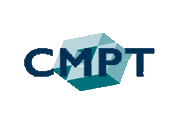



Much of the above can be facilitated by the use of information technology to provide international access to and communication of RTD information.
To improve communication and to assess more readily the match between requirement/ opportunity/ availability in RTD and new technology, there is merit in the development and use of widely accepted templates upon which to map RTD requirement, project activity and emerging technology against a set of descriptive parameters.
Support from public funds for fundamental, curiositydriven research conducted by high quality and well equipped research groups will continue to provide important, albeit unpredictable, contributions to the advance of know-how and technology required by industry. However the translation from curiosity-driven to needs-driven research can be promoted by improved, regular information exchange between the stakeholders, especially from industry towards the research community. Attracting groups engaged in basic research to participate in more applied, industry-funded projects and programmes will be beneficial.
A major challenge for industry is how bestto utilise the RTD capability which exists internationally. In many cases, the best competences to address industry challenges will be harnessed only through networking of RTD groups. There is a need to optimise the dispersed capabilities which exist and to avoid dissipation of resources among individual research groups working on "marginal" projects (see also Thomassen, 1995). Client companies defining their own needs and then inviting competent groups to participate in the developmentand conductof research programmeswill contribute to greater efficiency and success in applied research. This proactive approach, already followed by a small number of major companies, is likely to spread not least as a consequence of the increased linkage between RTD investment and business need.





Last Updated 9/9/96